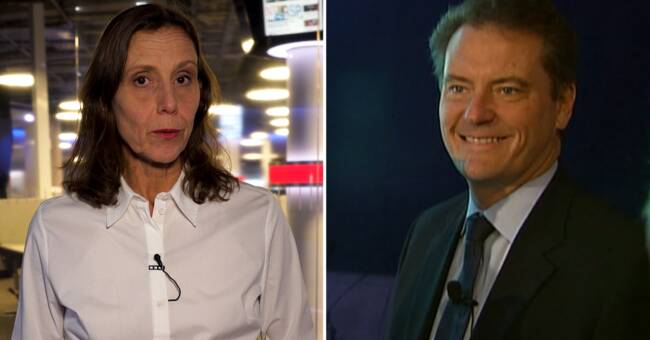When the pandemic broke out, it was clear that the truck company Volvo's top managers would be without a bonus.
The goals, which were set in December 2019, were about a certain level of profit and cash flow.
They became completely unrealistic to achieve when the world shut down and factories stood still.
In that situation, the message came from Volvo's chairman in an interview: there would be no bonuses for 2020. The fixed salaries were thus enough, also slightly reduced.
In the case of CEO Martin Lundstedt, 14.5 million, SEK 400,000 lower than last year, when he also received 13 million in bonuses.
The long-term bonus in the form of shares was also absent when the dividend was canceled.
20,000 were laid off
20,000 employees were laid off.
Volvo applied for and received more than SEK 1 billion in redundancy support from the Swedish state.
But on May 28, Volvo's board decided to change the criteria for bonuses to top executives, thereby lowering the bar.
The result for the CEO was ten million in bonuses, in addition to the fixed salary.
The bonus note for the top managers totaled SEK 118 million in the pandemic year 2020. Half is cash, half is a long-term share bonus.
Svanberg and central figure
I have reviewed bonuses in the stock exchange's large companies since 2006. Even then, short-term bonuses were common.
Even then, almost all CEOs with bonus agreements also received bonuses.
And even then, Carl-Henrik Svanberg was a central figure.
That time as CEO of Ericsson.
The first year, he even received a guaranteed bonus, of eight million kronor.
It was unusual, but a heavy professor at the School of Business, Economics and Law said that bonuses were generally quite a bit about skill and more about luck with the economy and other things.
Bonuses could also lead to errors.
Carl-Henric Svanberg's representative had received a bonus on cash flow when the crisis was at its deepest for Ericsson, after which the office buildings were sold at breakneck speed before the turn of the year, in what then became known as the "midday sale".
That is how the financial crisis came about.
The bonus systems were blamed and severely criticized, including by the Swedish moderate finance minister.
More research was done, which showed that, above all, cash bonuses with short-term goals risk leading to short-term and incorrect decisions from company management.
But when we did the survey in Assignment Review ten years later, it turned out that the short-term bonuses have nevertheless increased.
Once again, Ericsson played the lead role, this time through Svanberg's successor.
His bonus soared despite misinvestments and lousy stock development.
When he was fired, he had received a total of 200 million in salary, bonus and pension.
The bar was obviously too low for Carl-Henric Svanberg's successor at Ericsson.
And he himself had no bar at all for his bonus the first year at Ericsson.
A bit disturbing
But to lower the bar, it is to take it to a new level, so to speak.
Especially when the Treasury has helped the result on the stack.
Carl-Henric Svanberg is happy to be able to give a bonus and justifies the decision to lower the bar by saying that the board wanted to "create incentives for a quick turnaround in the current difficult circumstances".
It feels a bit worrying if the corona crisis in itself is not a sufficient reason for the management of Sweden's largest company to get out of it.
That the CEO would watch Netflix at home between the video meetings if there was no bonus chance.
But now it was ten million.
Plus ten more in long-term share bonus.

